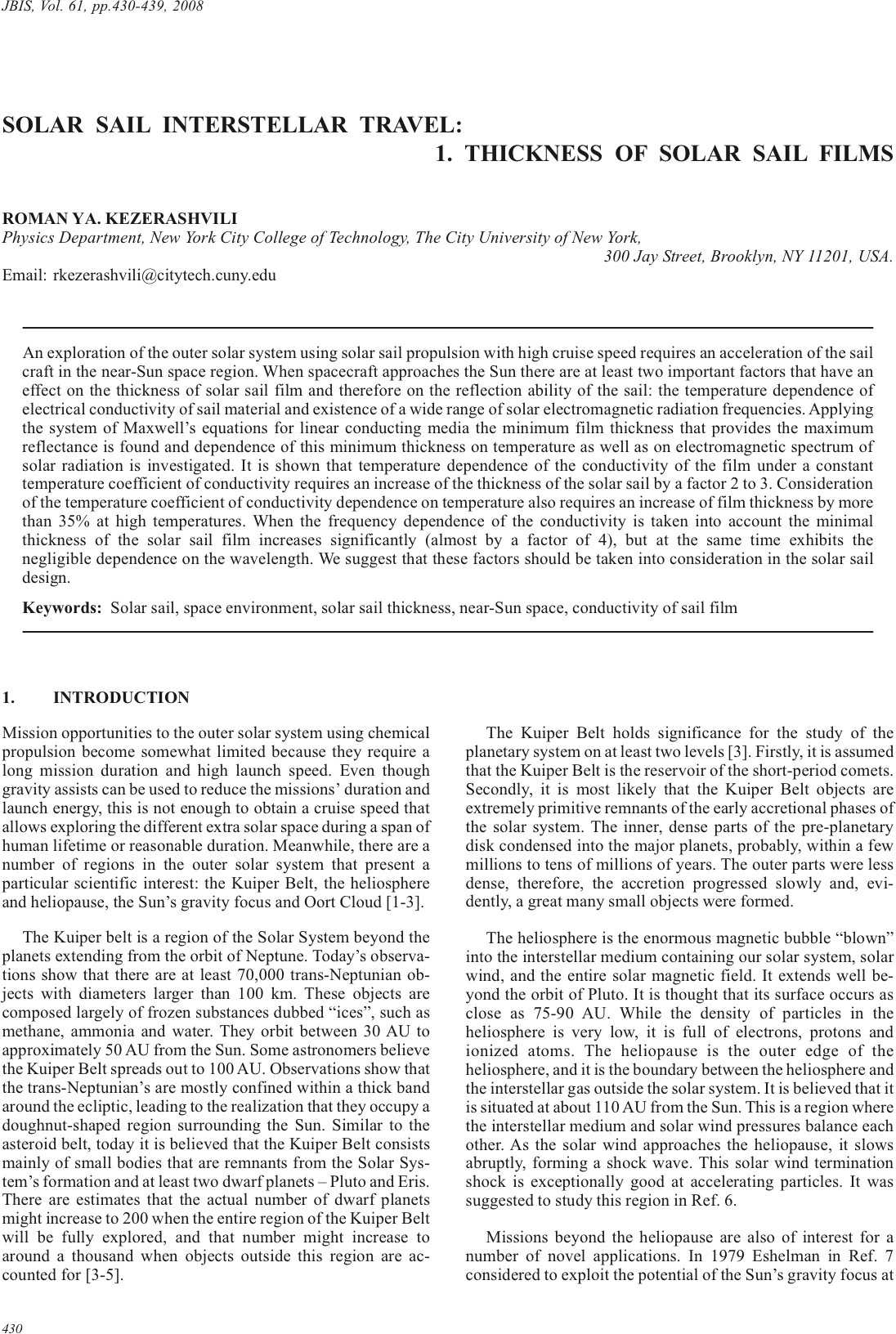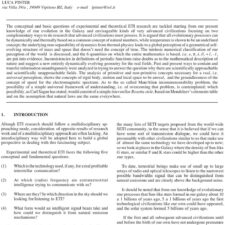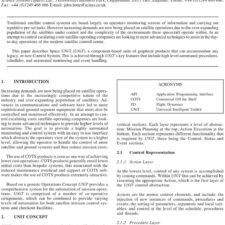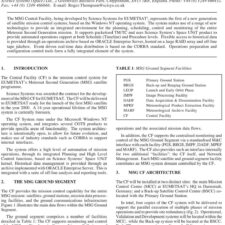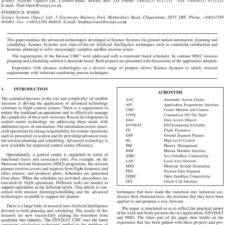Solar Sail Interstellar Travel: 1. Thickness of Solar Sail Films
£5.00
R. Ya Kezerashvili (2008), JBIS, 61, 430-439
Refcode: 2008.61.430
Keywords: Solar sail, space environment, solar sail thickness, near-Sun space, conductivity of sail film
Abstract:
An exploration of the outer solar system using solar sail propulsion with high cruise speed requires an acceleration of the sail craft in the near-Sun space region. When spacecraft approaches the Sun there are at least two important factors that have an effect on the thickness of solar sail film and therefore on the reflection ability of the sail: the temperature dependence of electrical conductivity of sail material and existence of a wide range of solar electromagnetic radiation frequencies. Applying the system of Maxwell’s equations for linear conducting media the minimum film thickness that provides the maximum reflectance is found and dependence of this minimum thickness on temperature as well as on electromagnetic spectrum of solar radiation is investigated. It is shown that temperature dependence of the conductivity of the film under a constant temperature coefficient of conductivity requires an increase of the thickness of the solar sail by a factor 2 to 3. Consideration of the temperature coefficient of conductivity dependence on temperature also requires an increase of film thickness by more than 35% at high temperatures. When the frequency dependence of the conductivity is taken into account the minimal thickness of the solar sail film increases significantly (almost by a factor of 4), but at the same time exhibits the negligible dependence on the wavelength. We suggest that these factors should be taken into consideration in the solar sail design.

